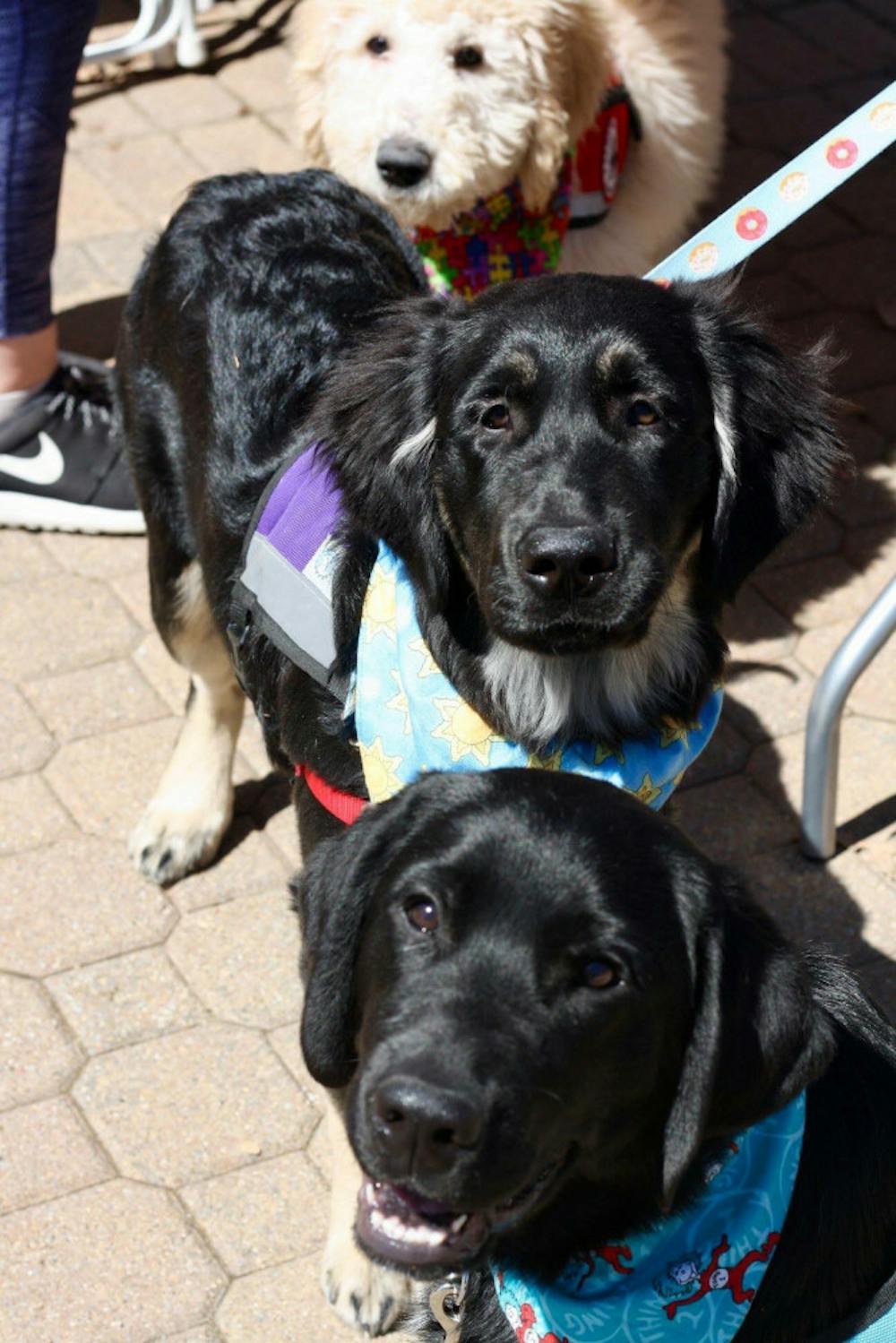One of Wright State University's organizations includes 4 Paws for Ability; a non-profit organization aimed towards training service dogs to assist children with disabilities. The main goal of 4 Paws is to provide service dogs for as many children as possible, regardless of their age or disability. The secondary goal is to educate the public on the value of service animals and their respective laws. Veterans dealing with the after effects of active combat, such as loss of limbs or hearing, are also taken into consideration.
In 1998, 4 Paws was founded by Karen Shirk, who survived with the help of a service dog. Since many dog agencies she applied to deemed her to be too disabled, she struggled for years to find a service dog. Once she found and trained a dog of her own, she decided to create a place where people with all kinds of disabilities can have access to a service animal.
With humble beginnings, it took the organization years to get to the point they are at today. Now known as the largest organization working towards placing service dogs, 4 Paws has a 90 percent success rate.
“One of my most memorable experiences so far was watching my previous dog, Volstagg, graduate as a service dog,” said Kelly Kleiman, president of 4 Paws WSU. “It’s what we work so hard towards and to see it finally happen was incredible.”
Service dogs are trained depending on the disability of the child, so there are several types of service dogs available. For example, there are seizure-assistance dogs, autism-assistance dogs, mobility-assistance dogs and many more. Each dog is trained carefully before they are handed over to families.
Before the dogs are trained, they are socialized by volunteers; it is mandatory for volunteers to undergo training as well. Allyson Montero, a former 4 Paws WSU member, described them as intense training sessions.
“We had a full day of training at the headquarters after which volunteers would meet on campus once a month to learn more about the program,” Montero said. “Once we are done socializing the dogs, we give them back to 4 Paws for intensive training. That’s when they start to learn the medical and obedience part of their training.”
The volunteers will spend a certain amount of time training, socializing and taking care of the dogs. “When you see a child meet their dog for the first time and start loving them, it’s the best feeling ever. Then, to find out that the child hates physical contact but finds comfort in the touch of his dog is even more incredible,” Kleiman added.
Since 4 Paws is non-profit, they would prefer volunteers over paid employees, although they are also welcome. Having much of the agency run by volunteers will help the organization manage finances related to training and placing service dogs. For more information on 4 Paws’ goals and missions, go to 4PawsForAbility.org. The link for the on-campus organization can be found on Engage.
photo by 4 Paws for Ability WSU Twitter.













